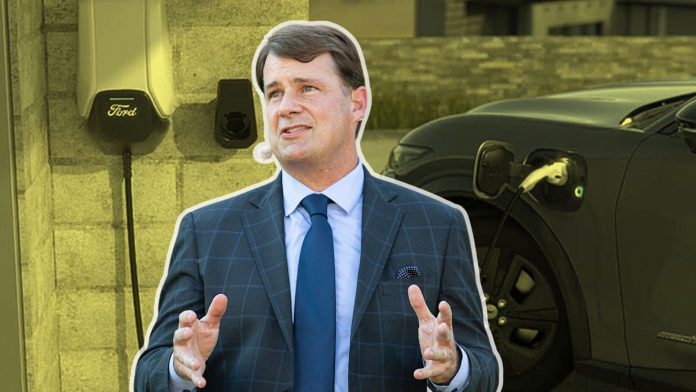Yesterday, Ford announced that it had advised dealers to pause investments related to selling electric vehicles until it completes a review of its requirements in June. This decision follows a “Dealer Engagement Tour” in which Ford executives engaged with over 1,000 dealers across 11 meetings nationwide to gather feedback.
The Dearborn automaker had previously set a June 30 deadline for dealers to invest in Level 2 EV charging stations to qualify for its Model E certification program, which allows them to sell EVs. Although Ford eased these requirements in November, it has continued to modify its all-electric programs. Recent changes include delaying the launch of a three-row SUV by two years due to slower-than-expected EV sales growth, attributed to affordability concerns, lack of charging access, and other barriers.
In light of these market conditions, dealer feedback, supply chain issues, and infrastructure delays, Ford reduced the certification requirements in November. By the end of the month, dealers needed to install two Level 2 chargers instead of five to achieve “certified” status. The requirement for “certified elite” status was reduced to three Level 2 chargers, and the mandate for a “Level 3” fast charger in 2026 was removed. Additionally, they reduced employee training requirements.
Marty Günsberg, a Ford spokesperson, stated, “We’re now in the process of reviewing all that collaborative engagement and turning it into immediate, mid-term, and long-term changes where it makes sense for our customers, our Dealers, and Ford. We will have more specific details to share in a few weeks. Ford recommends that dealers pause their action items and qualifiers related to the voluntary program until we complete our review and work with the Dealer Council in June.”
Due to slowing EV sales growth, Ford has delayed $12 billion in EV-related spending. The company’s Model e-business division anticipates a loss of up to $5.5 billion in 2024.
Despite these adjustments, in December 2022, Ford CEO Jim Farley revealed that two-thirds of dealers had signed up for the EV charging program. Currently, about half of Ford’s dealer network is enrolled in the voluntary program, according to Günsberg. The requirements have also led to several lawsuits with mixed outcomes nationwide.




